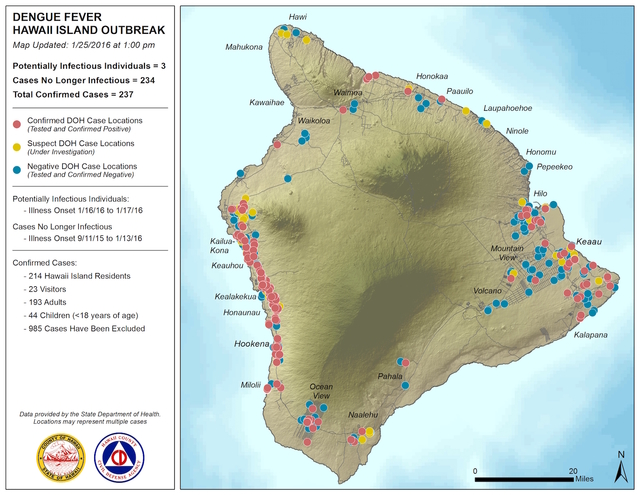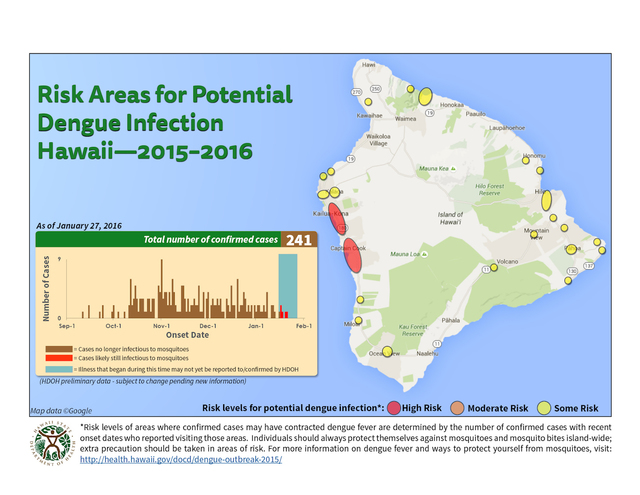State health officials confirmed Wednesday an additional four cases of dengue fever, bringing the Big Island outbreak’s total to 241. ADVERTISING State health officials confirmed Wednesday an additional four cases of dengue fever, bringing the Big Island outbreak’s total to
State health officials confirmed Wednesday an additional four cases of dengue fever, bringing the Big Island outbreak’s total to 241.
Parts of Kailua-Kona and Captain Cook remain areas of high risk for infection, while 21 other areas around the island were given the lowest rating of “some risk” by a new potential infection map issued Wednesday by the state Department of Health.
Of all people on the Big Island confirmed as being infected by the mosquito-borne virus, five remain potentially infectious, having experienced onset of symptoms between Jan. 17 and 21.
Since the start of the outbreak Sept. 11, 2015, a total of 1,008 reported cases have been ruled out by health officials as being dengue.
Hawaii County Civil Defense continues to direct efforts to minimize the spread of the outbreak, with Vector Control workers performing mosquito site assessments and spraying as needed.
State and county agencies will host a community information session at 6 p.m. Feb. 4 at the Amphitheater in Pu‘uhonua o Honaunau National Historic Park to provided the latest information and answer questions from residents.
Presentations will be made by representatives from the Office of the Mayor, Civil Defense, the state Department of Health, the federal Centers for Disease Control and Prevention, the U.S. Geological Survey and the National Park Service.
Julia Swanson, a ranger at the park, said Wednesday that park officials would provide information about their efforts to combat dengue within the habitat at Honaunau, as well as answer questions from the public.
“Our first focus will be to discuss mosquito surveillance activities, both outside and inside the park … and we’ll share some materials we came up with … to help inform the public,” she said.
Meanwhile, the statewide “Fight the Bite” campaign continues to urge people to avoid contact with mosquitoes by limiting activities in the early morning and late afternoon when mosquito activity is heaviest, as well as to avoid spending time in areas with heavy mosquito populations.
Residents are encouraged to wear long sleeves and pants to limit skin exposure to mosquitoes, as well as the use of insect repellents.
More information about preventing exposure to dengue fever can be found at http://health.hawaii.gov/docd/dengue-outbreak-2015/.
Email Colin M. Stewart at cstewart@hawaiitribune-herald.com.




